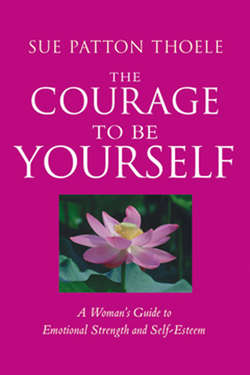Читать книгу The Courage to Be Yourself - Sue Patton Thoele - Страница 33
На сайте Литреса книга снята с продажи.
MOTHER
ОглавлениеThere are only a few times in our lives when we need to be mothered. Some are early childhood, senility, illness, and emotional meltdown. The rest of the time, no matter who we are, we need to develop our own inner capacity to be strong and take care of ourselves. Yet women have chosen to mother men and other women, despite the thoroughly proven fact that an inappropriate and untimely mothering attitude means death to romantic love and the love between equal marriage partners, as well as to friendship.
I often find myself suggesting my women clients “monitor their momisms.” A momism expresses itself in ways as trivial as telling a driver where to park: “Why don't you park by the bank?” You may say that this is just being helpful, but in the driver's mind it will most likely be interpreted as patronizing and as being unnecessarily controlling. The driver, consequently, is likely to feel he or she is being treated like a stupid, incapable child. No one enjoys being told that he or she can't perform simple tasks such as deciding where to park a car. Of course, if help is requested, that's different.
Another momism is nagging. When we feel the need to remind and reproach, we are nagging: “Have you done (____) yet?” “You shouldn't go out with only that light sweater! You'll catch your death of cold.” “How many times do I have to tell you to do (whatever)?!” People soon learn to turn a deaf ear, or a rebellious back, to nagging.
To be fair, there's another side to the momism coin. Some men have a tendency to play “little boy” in an effort to get a woman to adopt the mother role, take care of them, and fulfill them inwardly. But you can stop your part. It may leave teeth marks on your tongue, but if you want to save your relationships with your mate, children, friends, and coworkers, stop being everybody's mom.
Momisms may seem empowering for a time but, in the long run, don't help you or anyone else. Momisms may, in fact, exhaust you and destroy your freedom and others' self-esteem. To the extent you feel the need to mother another adult, you will also shoulder his or her responsibility. If you are carrying all the responsibility in a relationship, why should the other person even attempt to carry his or her own? It's fascinating that the Chinese symbols for “attachment” and “mother” when combined mean “poison.” When we attach ourselves to the role of mother, usurping others' right to learn from their own mistakes, we poison the relationship between us.
